St. George's Monastery began in the 4th century when a few monks seeking the desert experiences of the prophets settled around a cave where they believed Elijah was fed by ravens. The Greek Orthodox monastery was built in the late 5th century A.D. by John of Thebes, who became a hermit and moved from Egypt to Syria Palaestina in 480 A.D. The monastery was named St. George after the most famous monk who lived at the site – Gorgias of Koziba.
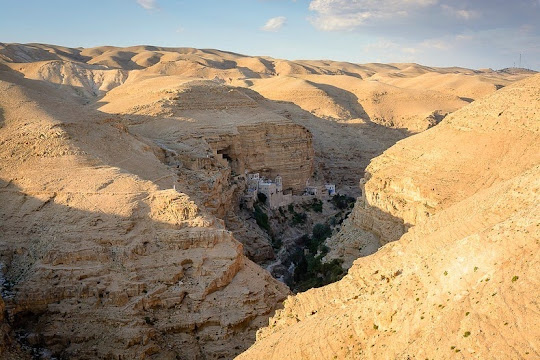
The monastery was destroyed in the year 614 by the Persians who swept through the valley and massacred the fourteen monks who dwelt there. The bones and skulls of the martyred monks can still be seen today in the monastery chapel. After the Persian invasion, the monastery lay abandoned for nearly 500 years until restoration attempts were made by bands of Crusaders in the 12th century. But after they were expelled, the monastery fell back into disuse. In 1878, a Greek monk, Kalinikos, settled here and restored the monastery, finishing it in 1901.
Today, the monastery is unique in its acceptance of female pilgrims and visitors, a precedent set through the tradition of a Byzantine noblewoman on a monastic tour who claimed that the mother of God had directed her there for healing from her incurable illness.
The monastery is located 20 km from Jerusalem along the historic road from Jericho to Jerusalem, which runs parallel to the valley. A pedestrian bridge across the Wadi Qelt connects the monastery to the road.
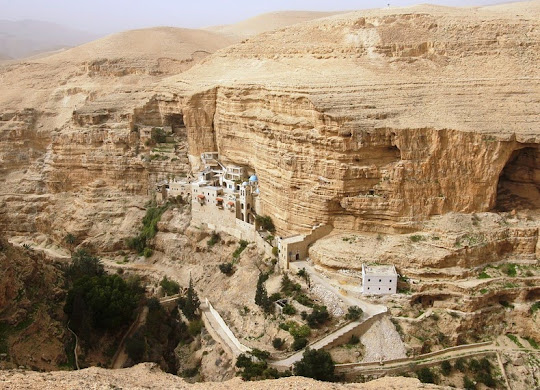
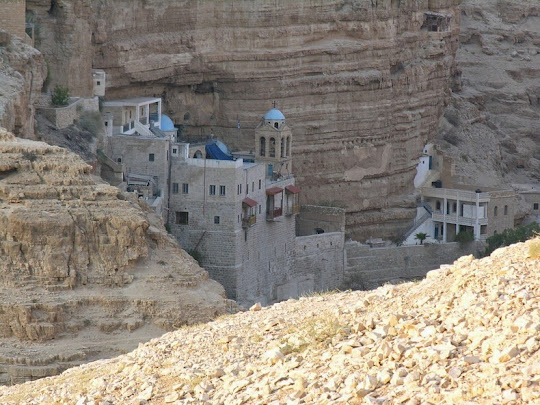
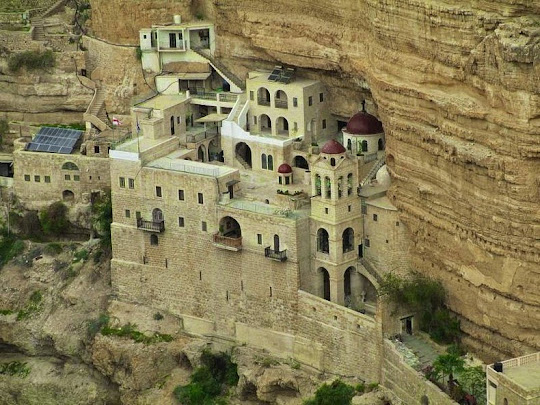
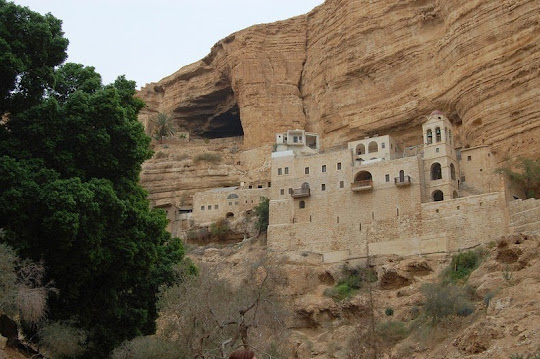

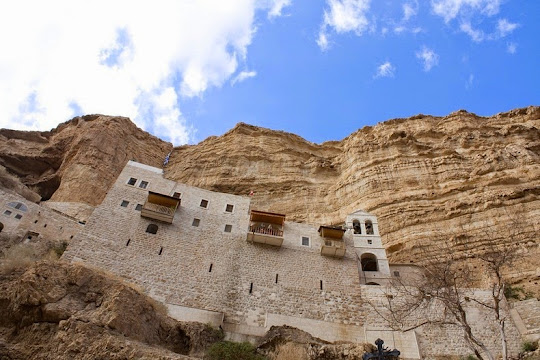
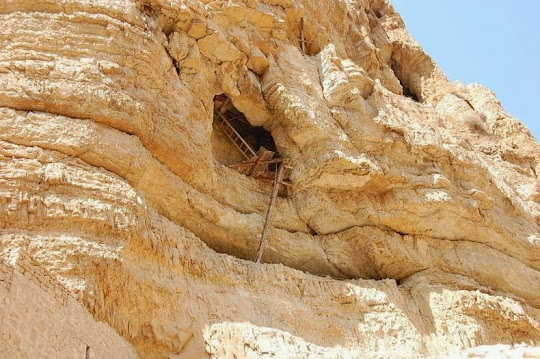
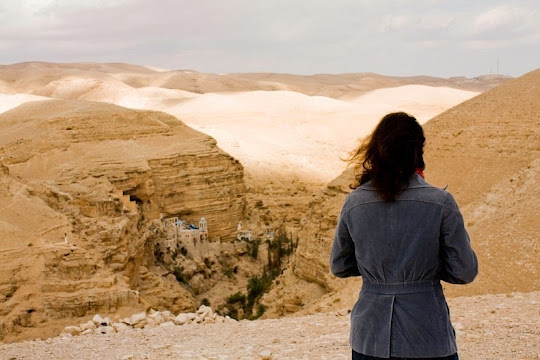
Source
